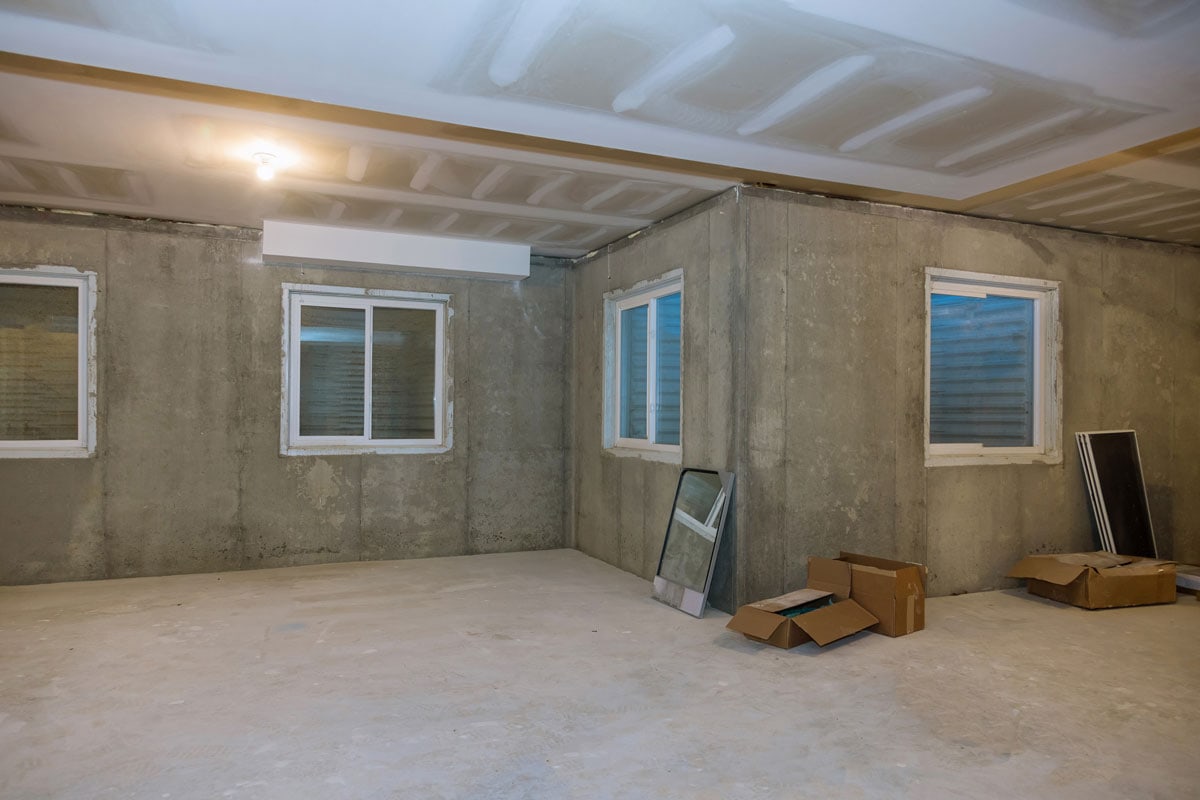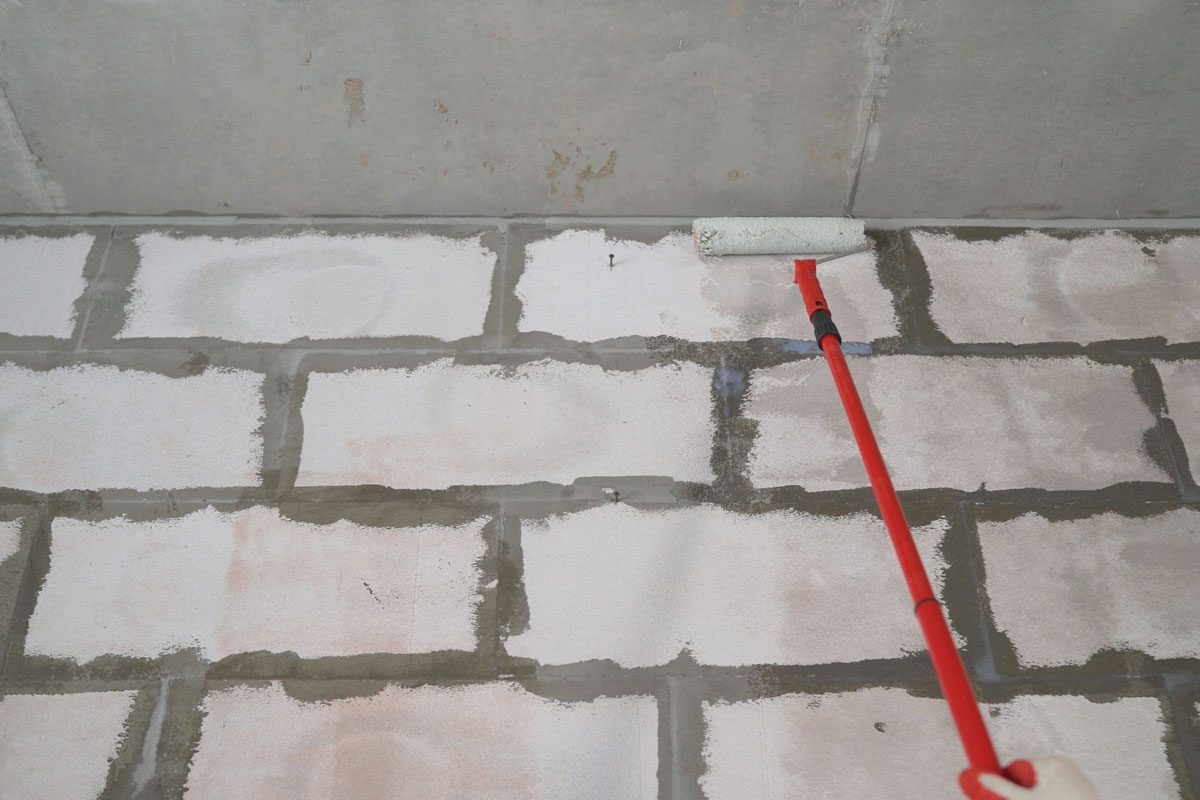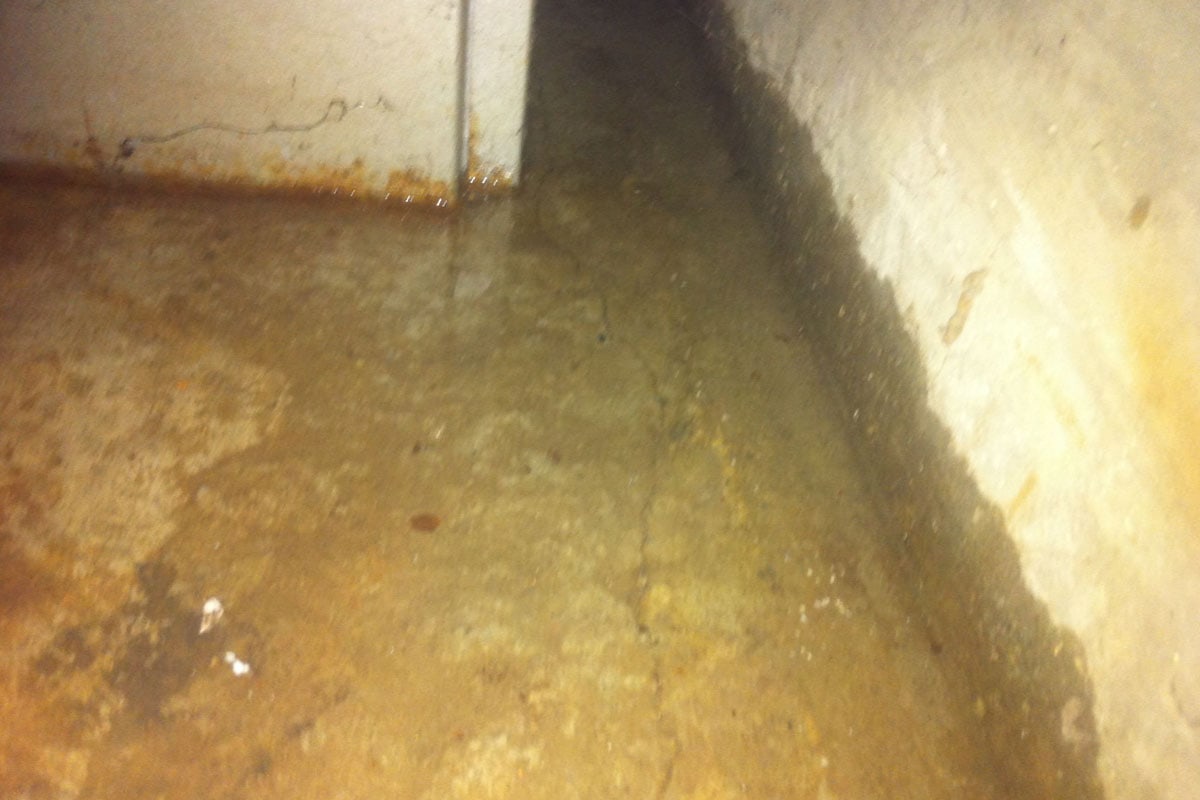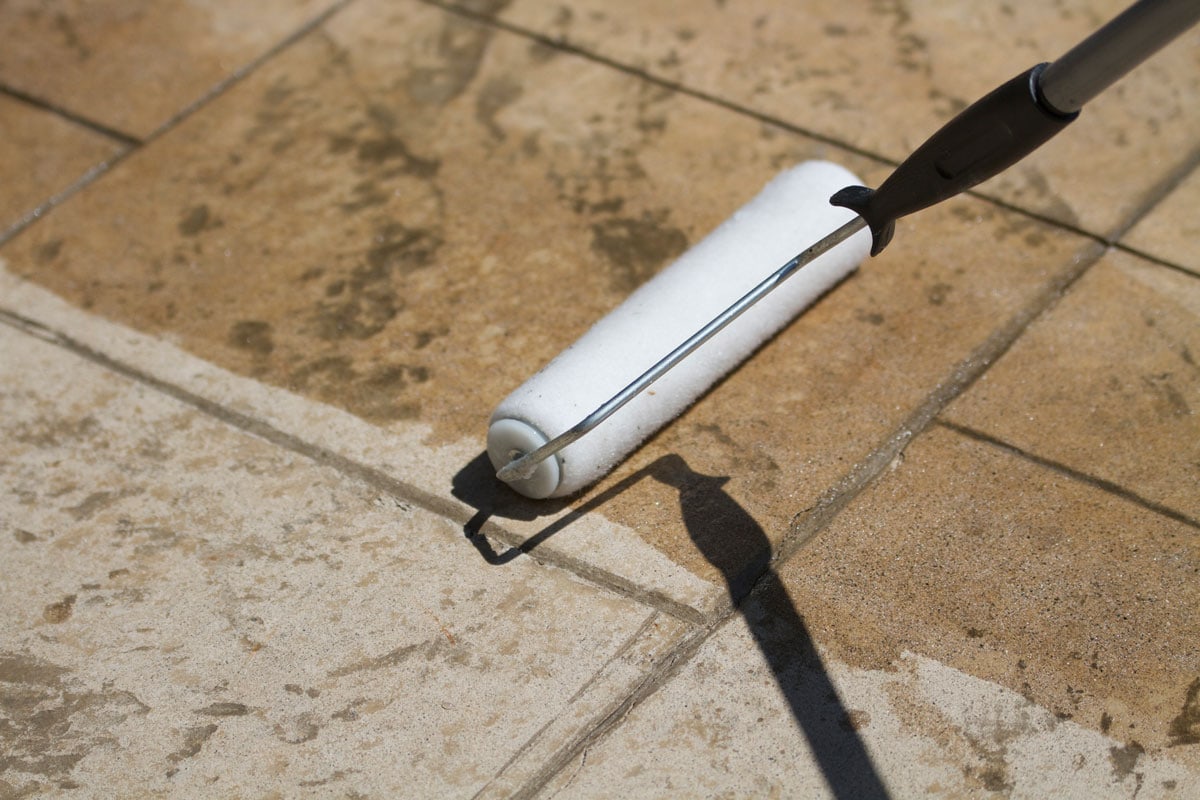The job on your list includes waterproofing your basement walls, but so many sealant products are available. Now, you might wonder what's the best sealant for basement walls. Well, wonder no more! Because we've scoured the internet and have the answers below.
There are three best-known sealants among many basement wall sealant products available. These are:
- Lithi-Tek 4500
- Siloxa-Tek 8510
- DRYLOK
These sealants will work better if you clean your basement walls before applying them. In addition, these products' quality varies on your preferable type of application.
Keep reading as we tackle the detailed steps below to seal your basement walls properly. We will also cover some usual questions that most people have. With that said, let's dive right in!
![Professional Workman Applying Silicone Sealant With Caulking Gun on the Wall, What Is The Best Sealant For Basement Walls? [3 Great Options Explored]](https://hvacseer.com/wp-content/uploads/2022/06/What-Is-The-Best-Sealant-For-Basement-Walls-3-Great-Options-Explored.png)
Should I Seal My Basement Walls?
Yes, you should: it's always crucial to protect the basement walls by ensuring water cannot enter the house through the foundation. Therefore, a basement sealant is essential for preventing leaks from affecting your home's contents and structure.
It's no secret that having a dry basement improves the stability of your home. Besides, if you let the water stays in your basement for a long time. Consequently, Insects will eventually swarm in there, making the place uncomfortable.

How To Apply DRYLOK To Basement Walls In 4 Steps
Applying DRYLOK to your basement walls can enhance its structural ability to prevent intrusion. Also, DRYLOK is designed to withstand a 15 psi of water pressure making it a perfect water stopper.
- Prepare all your needed materials and protective gear.
- Ensure all voids and cracks is clean before sealing them.
- With a thick brush, apply DRYLOK to your basement walls.
- Let the first coat rest for at least 5 minutes before starting the final coat.
Check out this quick visual demonstration on YouTube:
See this DRYLOK waterproof on Amazon.
Which Is Better: DRYLOK Or Thoroseal?
Both serve the same purpose to seal away any seepage element from your basement walls but come in different features. Determining which is better varies in quality, the convenience of usage, and moist permeability.
DRYLOK comes in latex-based, pretty easy to use, making it the perfect choice for DIYing the job. This sealant is best used above and below graded masonry walls and floors.
In addition, it's made of a lighter substance, and it takes only 2-3 hours to dry.
In contrast, Thoroseal is based on cement which is so durable and ideal for commercial basement walls. Its drying time is approximately 24hrs, and it requires a thorough mixing process making it not suitable for beginners.
If you want a quick solution, then use DRYLOK and if you prefer longevity, use Thoroseal.
How Long Does DRYLOK Last On Your Walls?
DRYLOK walls are guaranteed to last up to 7 years of decent service when properly applied based on the steps above.
DRYLOK products will continue to perform well for many more years in such conditions.
Is Flex Seal Good For Basement Walls?
Flex Seal is a liquid rubber sealant, and it is also a versatile one; it can also work in most DIY projects in your house. It's suitable for basement walls as its sprays a very thick rubber liquid on voids and holes.
In addition, it dries fast within 2-3 hours and will be fully cured in 24hrs.
See this Flex Seal spray on Amazon.
Can I Use Tar For Sealing Basement Walls?
Tar should not be used on your basement walls. However, most homeowners can easily apply these products themselves. However, there are certain drawbacks to applying tar to your basement walls.
Over time, asphalt-based tars become dry and brittle. Besides, water can dissolve tar, resulting in a reduction in its effectiveness.
What Is The Difference Between Waterproofing And Damp Proofing?
In foundation building, damp proofing and waterproofing have different meanings and purposes. Damp proofing is preventing soil moisture (dampness) from entering a structure.
In contrast, waterproofing protects a structure from both moisture and water.
According to International Residential Code (IRC), waterproofing is necessary for areas where soil-water conditions are critically present. On the other hand, damp-proofed is required in below-grade foundation walls.

How Do You Waterproof A Cinder Block Basement Wall?
Cinder blocks are substantially more porous than regular concrete or poured concrete. It is also water and water vapor permeable (+10 perms).
Adding an extra protective sealer will help prevent water and water vapor from seeping into your basement wall.
Here below are the steps on how to waterproof a cinder block wall:
- Remove any debris, loose mortar, or efflorescence from the surface.
- With your hydraulic cement, repair any gaps in the basement cinder-block wall.
- Apply the first layer of Sundry or DRYLOK paint with a masonry paintbrush.
- Apply a second and even third coat of paint to the wall for even more protection.
How Do You Fix Crumbling Concrete Basement Walls?
As most homeowners neglect and ignore to inspect regularly their basement walls. In some instances, you suffer and face the hassle every time rainwater starts to flow into your crumbling basement walls. Fixing it is essential for your home's structural stability.
Pro tip: Hiring a masonry specialist can do this job efficiently with a guaranteed quality result.
These are the ways to fix your crumbling basement walls:
- Waterproofing provides a protective barrier against moisture and keeps water from flowing away.
- Foundation restoration includes anything from crack sealing to wall and soil stabilization.
- Installation of a retaining wall to prevent foundation wall damage.

How Do I Stop My Basement From Flooding?
It is frustrating that your basement is flooding, but luckily, stopping this is still possible in most cases.
To prevent the basement from the flooding, you must adhere to these simple solutions:
Correcting The Slope Of Your Yard
The water must go somewhere when it rains to avoid basement flooding. Rainwater should flow away from your walls and toward city streets and gutters if your grass is sloped correctly.
Doing so will force the water not to seep underneath near your basement foundation.
Mulch Spacing From The Siding
It's crucial to keep a 6-inch or more barrier between your landscaping and outside walls when spreading mulch in flower beds and other areas around your home.
Extend Your Downspouts
Downspouts should not be connected to your basement drain or terminate directly above the ground outside your property. Make sure to divert it onto grass areas sloped away from your house. Hence, the water does not flow back and pools against your home's exterior walls.
Clean Your Gutter Regularly
During rainstorms, clogged gutters don't drain properly. As a result, water will spill straight underneath onto the ground all around the exterior of your property.
Installing A Backup System
You may avoid basement flooding by installing an automatic sump pump in your basement. We know that this will not stop the flooding, but planning ahead of time is never bad.
Having a backup plan will result in less stress and hassle on your side. Therefore the quicker you suck out the water, the minor damage it will inflict.
Does Concrete Sealer Stop Water?

Yes, it's suitable on your basement or garage floor against water moisture intrusion. The best way to prevent water moisture is to use a concrete sealer.
It resists moisture penetration and prevents efflorescence and vapor emission from rising to the surface. This sort of sealant extends the life of surface paints and coatings.
Can You Waterproof Basement From The Outside?
Yes, by installing a gutter in your roof, rainwater doesn't go down directly near your house. Instead, it drives the water away straight down in the downspouts. Also, ensure you have a functional drainage system.
The water will overflow when the drainage is clogged. Eventually, water will start invading your basement walls if left unsettled.
Hire a contractor, and let them excavate a deep trench around your house up to the base of the foundation. Because excavating a seven to eight-foot trench is dangerous, most homeowners will not install their drain tile.
It is frequently necessary to hire an engineer to ensure that it does not collapse.
To Wrap Up
![]()
We've learned what's the best sealant for your basement walls throughout this topic. We've discussed how to apply the sealant on your basement walls properly.
It's always a great idea to seal your basement walls. Sealing or waterproofing your basement walls is a long-term solution to protect your house from future problems. Knowing the comfort, it can give you is a luxury for you and your family.
If you found this helpful, see these other useful related topics:


